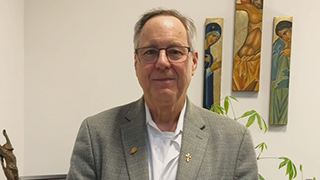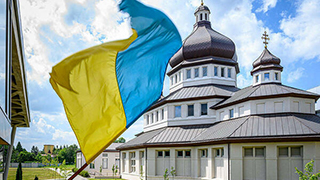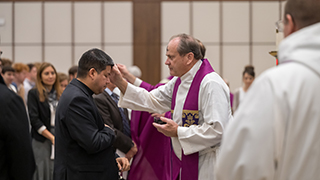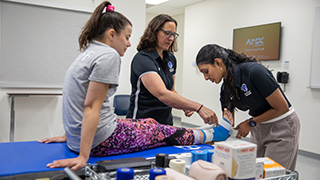Diplomacy Hosts Dialogue on Peacekeeping Operations’ Effectiveness - Seton Hall University
Friday, March 13, 2020
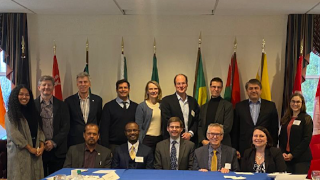
Among the participants were the representative of the UN Assistant Secretary-General for Africa, Ms. Bintou Keita, M. Nedialko Kostov from UNDPO, and the Executive Director of Impact, Dr. Joanne Lebert. Also present were Seton Hall faculty, including international law scholar, Professor Philip Moremen, Associate Dean Elizabeth Halpin, Dr. Nancy Enright, the Director of the University Core Curriculum, and Dr. Roger B. Alfani.
Student participation in the workshop was highlighted as being integral to shaping the future of the UNDPO. Dr. Enright explained that "students across all majors engage the world and topics of both peace and international studies through the University Core," and expressed her gratitude to students Eleanor Baldenweck, Anna Fagan, and Priscilla Plat, for being engaged in such an essential conversation.
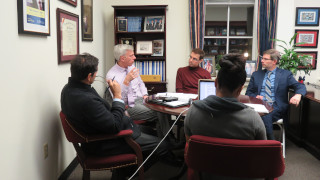
Moderated by Professor Moremen, participants of the first roundtable discussed issues pertaining to the role and rationale of UNDPO, their contribution to the duration of peace, and the successes and failures of peacekeeping missions. The second roundtable focused on the UN Secretary-General's initiative, "Action for Peacekeeping," which aims to renew mutual political commitments to peacekeeping operations. The final roundtable synthetized the earlier conversations into key takeaways for stakeholders and audiences ranging from UN member states, to civil society and beyond.
By the end of the two-day workshop, participants provided a multitude of recommendations to improve the success rate of peacekeeping missions. To bring an end to conflicts, participants suggested engaging youth, women, and girls in the peace process, issuing shared apologies for misconduct, and cultivating partnerships with academic institutions to provide research-backed recommendations for peacekeeping. They also emphasized the importance of securing sufficient funding for missions, partnering with NGOs, and collaborating with local stakeholders.
This dialogue was not only a timely event in part because of the importance the UN Secretary-General, António Guterres, places on the peace and security pillar, but the two-day dialogue allowed participants to reflect, examine, and provide practical recommendations to key stakeholders on how UNDPO can best contribute to both global and local peace.
Categories: Nation and World


